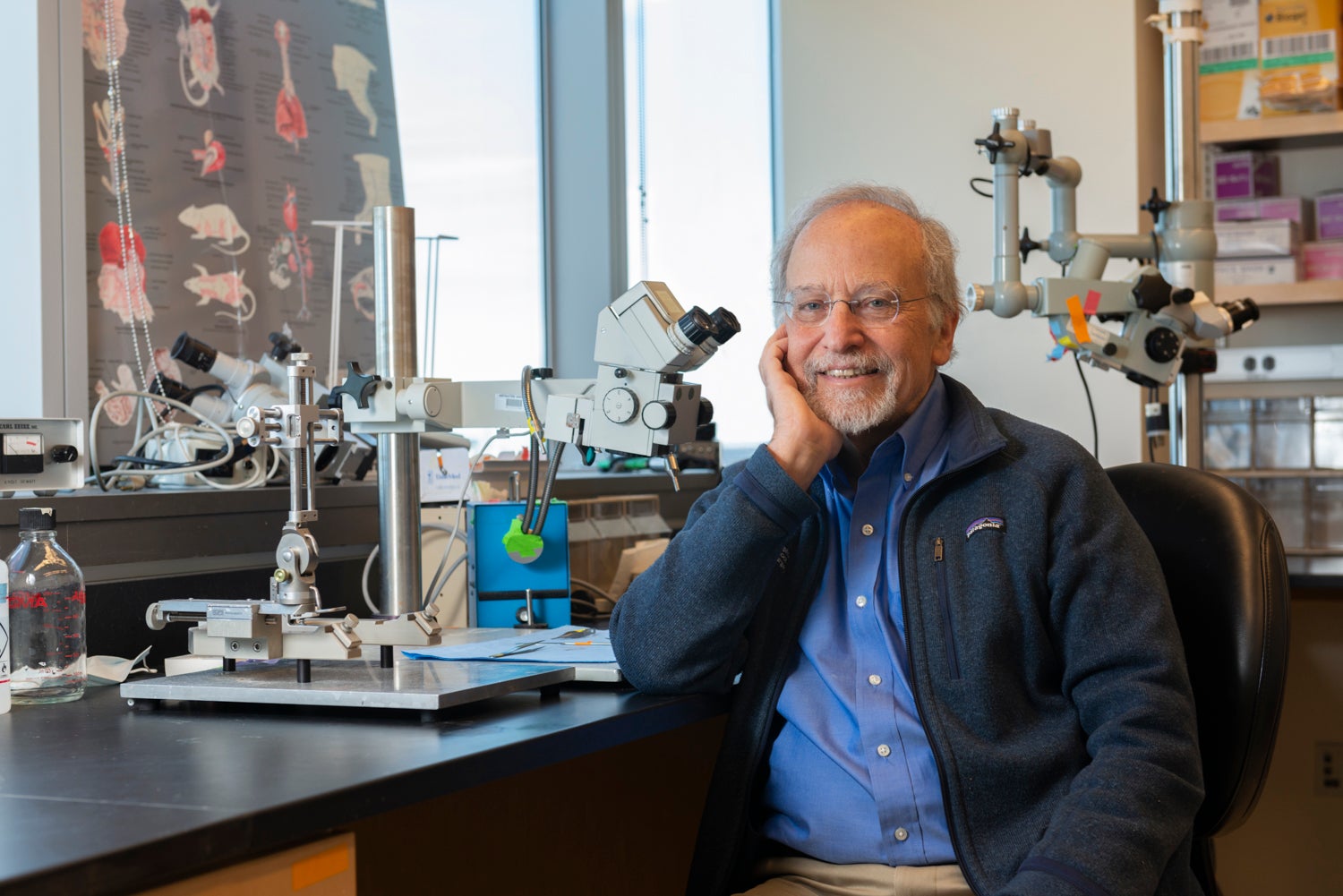Neurosurgical Innovation and Research Endowed Professor, Boston Children's Hospital

Victims of traumatic injury, stroke or neurodegenerative diseases can suffer permanent and often devastating losses in movement, sensation, bodily functions, and thinking ability. This is because, under normal circumstances, neurons in the mature central nervous system (CNS)– the brain, spinal cord and eye–cannot re-establish their connections after injury. Also, intact cells in the CNS have only a modest capacity to grow new connections to compensate for those that have been lost.
The Benowitz lab seeks to discover basic mechanisms that control the growth of nerve connections and apply insights from this work to promote regeneration and functional recovery after CNS injury. Much of our current research is focused on optic nerve regeneration, where we investigate molecular signals that enable the projection neurons of the eye, called retinal ganglion cells (RGCs), to regrow their connections through the optic nerve and back to the brain. Related to this work is our research on the signaling networks that cause RGCs to die after the optic nerve is injured, focusing most recently on the role of free zinc. We also have projects on stroke and spinal cord injury, where we examine methods to enhance the rewiring of brain connections and improve functional outcomes. In relation to these latter projects, we study inosine, a small, naturally occurring molecule that stimulates certain types of nerve cells to extend nerve fibers in cell culture and in vivo. Inosine appears to stimulate a cell signaling pathway that controls the expression of a group of genes required for axon growth, and we seek to better understand that signaling pathway.
